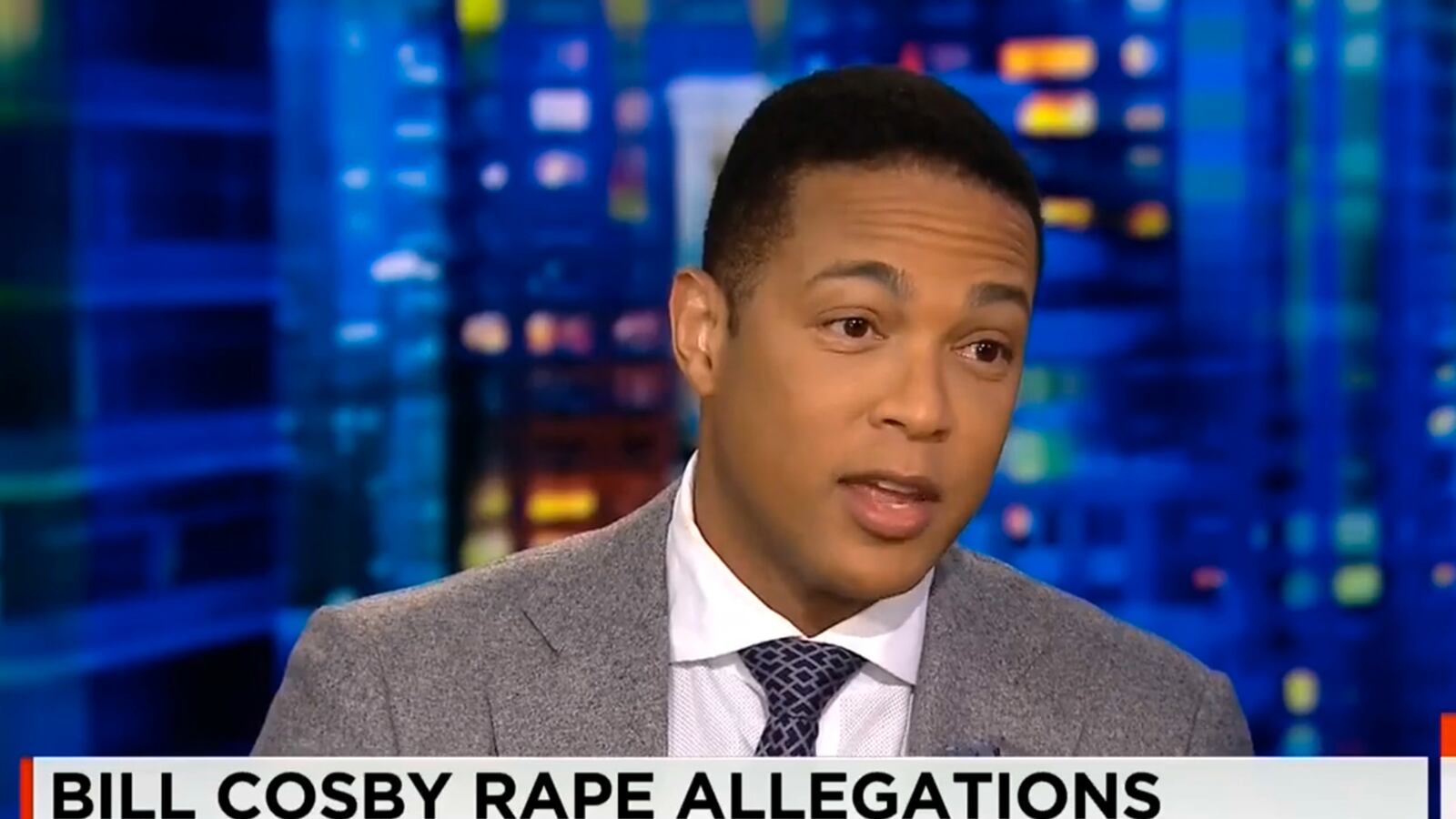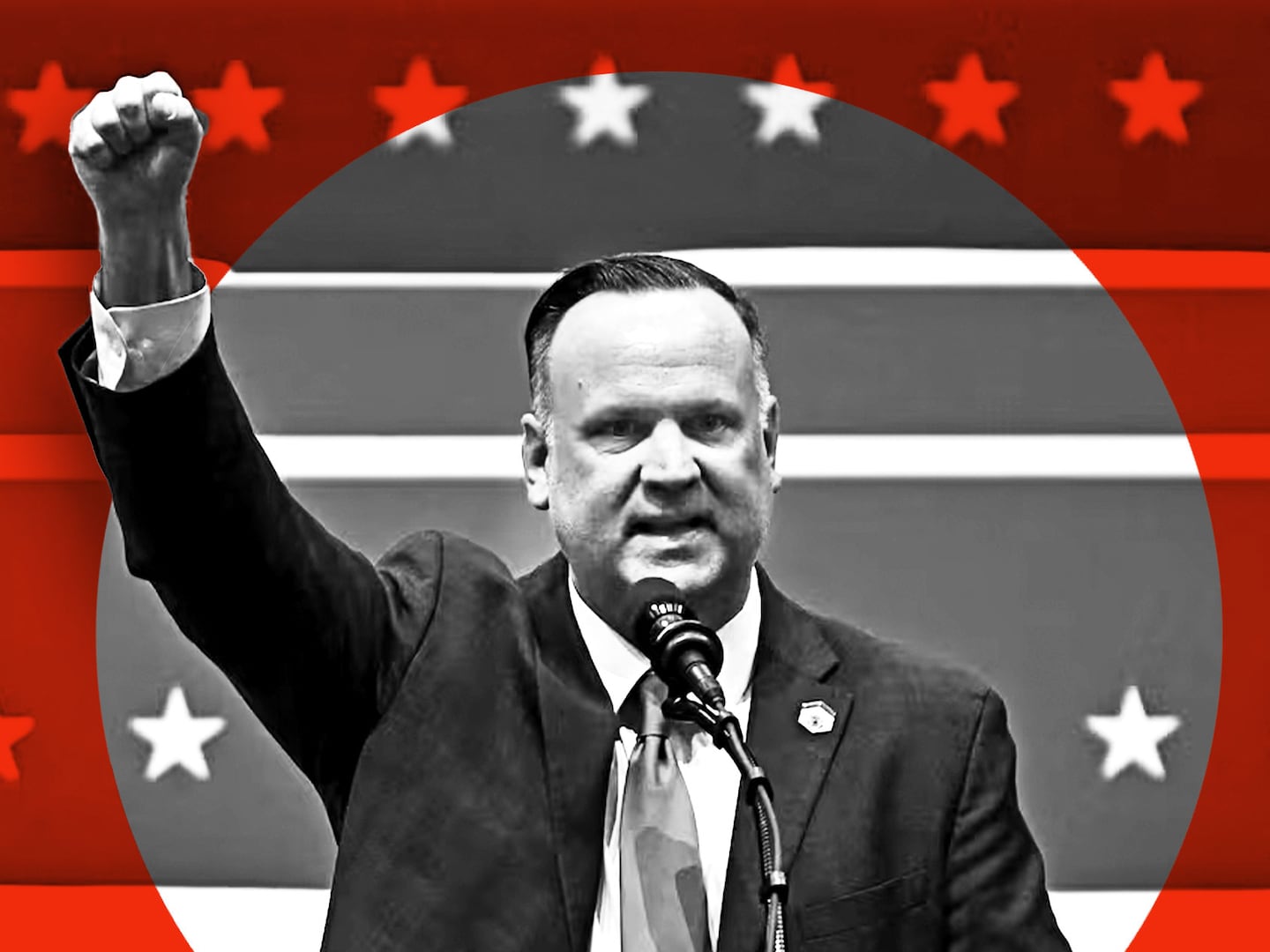CNN’s Don Lemon has apologized for asking Joan Tarshis—one of 15 women who have accused Bill Cosby of sexual assault—why she didn’t bite the Jell-O King’s penis when he allegedly forced her to have oral sex.
"As a victim myself I would never want to suggest that any victim could have prevented a rape,” he said Wednesday. “If my question struck anyone as insensitive, I’m sorry as that was not my intention.”
It was easy to pile on Lemon, but he isn’t problem. In fact, Lemon was asking a questioning that many, many Americans are probably wondering themselves—that’s the problem.
It seems to only be in cases of sexual assault (or domestic abuse) that people wonder why victims don’t do more to stop the attack. Lemon’s interview just proves how pervasive the mindset is. It shows how unfortunately different victims of sexual assault are treated from those who come forward as victims of other crimes.
So, a brief crash-course in how to discern victim-blaming.
Think about muggings. You don’t ask the victim why she or he didn’t just run faster or break his nose, so why ask the same of victim of sexual assault? Yes, some will fairly argue that a mugger could have a gun and will kill you if put up a fight. But the dynamic is the same: the victim is shocked, threatened, and immediately placed in a vulnerable position where her only goal is to get through it without further damage.
Actually, Tarshis did try to persuade Cosby from allegedly assaulting her by telling him she had an “infection” and if they did anything, his wife would get it. So, as Tarshis said in a recent essay: Cosby “just found another orifice to use.”
Of course, there are other details specific to Tarshis’s case—details that she has already shared—that makes the answer to Lemon’s wrongful question even more obvious.
Tarshis was a 19-year-old aspiring comedy writer in 1969, the time of the alleged assault. Cosby was already on the rise, with The Bill Cosby Show being a major success. The power difference was massive. Cosby could kill her career if she didn’t oblige him. Tarshis also mentioned she’s 5’ 3” and Cosby, who is 6’1”, nicknamed her “Midget,” cute and also indicative of the physical differences in size that would make fighting off Cosby futile.
Before a second alleged assault, Tarshis said Cosby spoke to her mom on the phone and told her he was inviting her daughter to come to his show. To turn it down, would have set off alarm bells to her family. On top of all of this, 55 years ago forcible oral sex wasn’t understood to be rape, believe it or not.
We have thankfully made significant gains in our legal and emotional understanding of sexual assault since then. Victims of sexual assault are more willing to come forward, share their stories, and demand prosecution.
As Lemon’s interview shows, though, we’re still struggling to understand the power dynamic behind sexual assault. If the alleged attacker hasn’t physically forced himself against his victim or isn’t threatening her life, too many think the victim submitted to her attacker.
Brute force isn’t the only means of sexual assault. Manipulation, coercion, and threats play into the complicated power dynamic that assaulters rely on to place their victims in vulnerable position. Cosby had tremendous power over his alleged victims. Not only was he influential enough to make or break a career in entertainment, but also he was so beloved by the public that accusing him of rape carried the risk of being ignored or even accused of lying.
Lemon has every right to ask someone who has chosen to make criminal accusations against a public figure on national television about her experience, even in graphic detail. The reaction to Lemon’s interview to be we shouldn’t ask questions of victims of sexual assault. We absolutely should ask because the more we talk about these experiences, the closer we come to understand the complicated dynamic that makes sexual assault so hard to discuss or comprehend.
The “why didn’t you do more?” line of questioning places the blame on the victim rather than the person who placed her in that situation.






